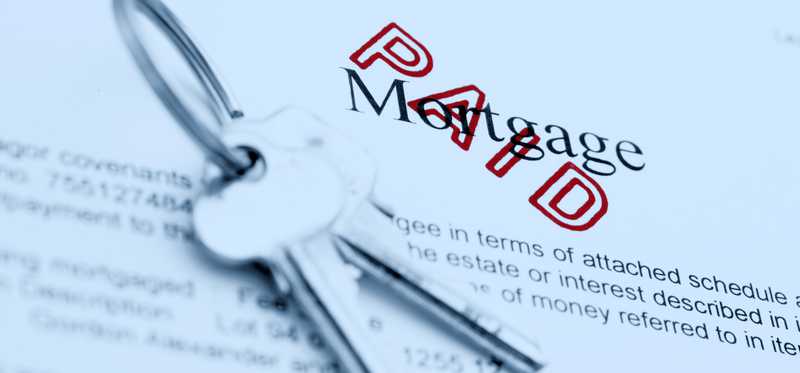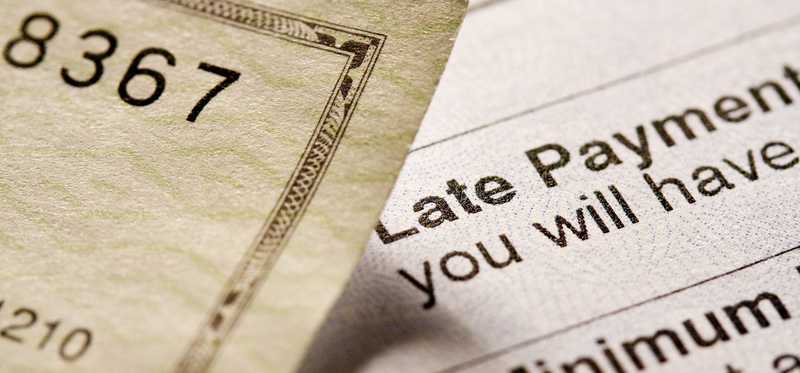6 Pros and 9 Cons of Becoming a Landlord

6 Pros and 9 Cons of Becoming a Landlord
Before becoming a landlord, consider the big picture
If you're thinking about buying a rental property, you need to make certain you evaluate both the pros and the cons. This type of real estate investment can definitely help you grow your net worth over time, but it's not always the right choice for everyone, and it doesn't pay off in every situation.
To help you decide whether it's right for you, here are some of the biggest advantages -- and disadvantages -- of becoming a landlord.
5 Stocks Under $49
Presented by Motley Fool Stock Advisor
We hear it over and over from investors, "I wish I had bought Amazon or Netflix when they were first recommended by The Motley Fool. I'd be sitting on a gold mine!" It's true, but we think these 5 other stocks are screaming buys. And you can buy them now for less than $49 a share! Click here to learn how you can grab a copy of "5 Growth Stocks Under $49" for FREE for a limited time only.
Previous
Next

Pro #1: You can make steady income each month
When you're a landlord with a rental property, you'll have money coming in from tenants paying rent. That provides a predictable stream of funds you can use to cover the costs of your investment and, perhaps, fund other financial goals as well.
ALSO READ: 3 Unconventional Real Estate Investments That Can Generate Passive Income
Previous
Next

Pro #2: You can grow your net worth as your property goes up in value
Ideally, your rental property's value will increase over time, helping you grow your net worth. You could sell the property for a profit or borrow against the equity you've acquired to purchase other investments. Since you get to collect rent and your property values go up, you can make money on your rental property in two ways.
Previous
Next

Pro #3: You can leverage your money
It's often possible to buy a rental property with very little money down. You should be able to get a low-interest mortgage loan to cover much of the cost. As a result, you can hopefully leverage your money effectively to earn generous returns from a small initial out-of-pocket expense.
ALSO READ: Is Commercial Real Estate a Millionaire-Maker Investing Strategy?
Previous
Next

Pro #4: You can diversify your investments
Having a mix of investments increases the chances that you'll build wealth over time. Adding real estate to your investment portfolio will mean you aren't reliant on the performance of the stock market alone to help you grow your net worth. And since you'll be able to build a more diverse pool of assets, you can reduce your investing risk.
Previous
Next

Pro #5: You can qualify for generous tax deductions
Real estate investing offers many tax benefits. There are tax write-offs you can take advantage of. And you may be able to avoid capital gains taxes on profits by using techniques like a 1031 exchange. Real estate investing generally provides more tax advantages than many other investing approaches, which means you'll give up less of your profits to Uncle Sam.
5 Stocks Under $49
Presented by Motley Fool Stock Advisor
We hear it over and over from investors, "I wish I had bought Amazon or Netflix when they were first recommended by The Motley Fool. I'd be sitting on a gold mine!" It's true, but we think these 5 other stocks are screaming buys. And you can buy them now for less than $49 a share! Click here to learn how you can grab a copy of "5 Growth Stocks Under $49" for FREE for a limited time only.
Previous
Next

Pro #6: You can hire a property management company if you want your rental properties to produce passive income
If you want to earn passive income through real estate investing, you can hire a property management company to handle the day-to-day tasks of being a landlord. That will enable you to receive income from renters regularly without spending a ton of time dealing with the minutiae of rental property ownership.
Previous
Next

Con #1: You'll have to spend time finding and managing your properties
If you manage your properties yourself, being a landlord can be very time-consuming. In fact, it may be difficult to do if you have another job. Even if you hire a property management company, you'll still need to spend time researching properties to buy, finding a property management company you like, and monitoring their performance so that you don't end up with unhappy tenants.
Previous
Next

Con #2: Hiring a property management company eats into your profits
If you decide to hire a property management company, you will have ongoing fees to pay, making it more difficult to earn a profit on your property. You also may have to pay your property managers even when you don't have tenants. This huge added cost could become a financial burden without rent coming in to offset it.
ALSO READ: Real Estate Investing: Is Hiring a Property Manager a Huge Waste of Money?
Previous
Next

Con #3: You'll still have to pay carrying costs even if you can't find renters
If your property is vacant, you still must pay your mortgage, property taxes, insurance costs, and property management fees. You'll also have utilities to pay when there's no tenant to cover them. This means you face the risk of becoming responsible for large monthly bills without any guarantee your property will generate enough income to pay them each month.
Previous
Next

Con #4: Your investment isn't very liquid
If you decide you don't want to own a rental property any longer, you can't just sell it immediately. You'll have to take time to find a buyer and hope you can locate someone willing to pay your desired price for the property. You'll also have large transaction costs to deal with. There are plenty of other, more liquid investments you could cash in more easily when needed.
5 Stocks Under $49
Presented by Motley Fool Stock Advisor
We hear it over and over from investors, "I wish I had bought Amazon or Netflix when they were first recommended by The Motley Fool. I'd be sitting on a gold mine!" It's true, but we think these 5 other stocks are screaming buys. And you can buy them now for less than $49 a share! Click here to learn how you can grab a copy of "5 Growth Stocks Under $49" for FREE for a limited time only.
Previous
Next

Con #5: Complying with the law can be complicated
Landlord-tenant laws can be very complex, and it's your responsibility to ensure you are in full compliance with all the rules. This could involve hiring an accountant or lawyer to advise you. The rules often favor tenants' rights over landlords' rights, so you also need to be prepared to deal with legal challenges if you need to evict a problem tenant.
Previous
Next

Con #6: There's a risk of having bad tenants
If you get a bad tenant, your property could be damaged, and you may even incur significant repair costs. You may also have to evict a tenant or deal with constant complaints from other renters if someone is causing issues. While you can screen tenants to reduce the likelihood of issues arising, there's never any guarantee that everyone you rent to will be trouble-free.
Previous
Next

Con #7: You'll have to deal with problems with your property
Landlords are typically responsible for handling repairs when things go wrong. This means spending both time and money to address issues. If your tenants call in the middle of the night because of a leaky pipe, you'll have to handle it or pay high fees to have someone do it for you.
ALSO READ: 5 Most Common Issues Landlords Run Into During Tenant Screenings
Previous
Next

Con #8: You'll incur annual upkeep and long-term maintenance costs
Maintaining your property is crucial for it to hold its value. So, you'll need to be prepared to spend the time and money to keep the home in good condition. That can reduce any profits you make and require a lot of extra effort on your part.
Previous
Next

Con #9: You may earn a lower return than with other investments
Although rental properties can be a good investment, there are other ways to invest in real estate that may provide a better return on investment -- especially when you figure in the cost of your time.
5 Stocks Under $49
Presented by Motley Fool Stock Advisor
We hear it over and over from investors, "I wish I had bought Amazon or Netflix when they were first recommended by The Motley Fool. I'd be sitting on a gold mine!" It's true, but we think these 5 other stocks are screaming buys. And you can buy them now for less than $49 a share! Click here to learn how you can grab a copy of "5 Growth Stocks Under $49" for FREE for a limited time only.
Previous
Next

Is investing in a rental property right for you?
After considering these pros and cons, you can hopefully make a more informed decision about whether you want to invest in rental properties. Becoming a landlord is a major commitment, so it's worth taking the time to consider both the advantages and disadvantages carefully so you don't end up making a choice you regret.
The Motley Fool has a disclosure policy.
Previous
Next
Invest Smarter with The Motley Fool
Join Over Half a Million Premium Members Receiving…
- New Stock Picks Each Month
- Detailed Analysis of Companies
- Model Portfolios
- Live Streaming During Market Hours
- And Much More
READ MORE
HOW THE MOTLEY FOOL CAN HELP YOU
-
Premium Investing Guidance
Market beating stocks from our award-winning service
-
The Daily Upside Newsletter
Investment news and high-quality insights delivered straight to your inbox
-
Get Started Investing
You can do it. Successful investing in just a few steps
-
Win at Retirement
Secrets and strategies for the post-work life you want.
-
Find a Broker
Find the right brokerage account for you.
-
Listen to our Podcasts
Hear our experts take on stocks, the market, and how to invest.
Premium Investing Services
Invest better with The Motley Fool. Get stock recommendations, portfolio guidance, and more from The Motley Fool's premium services.